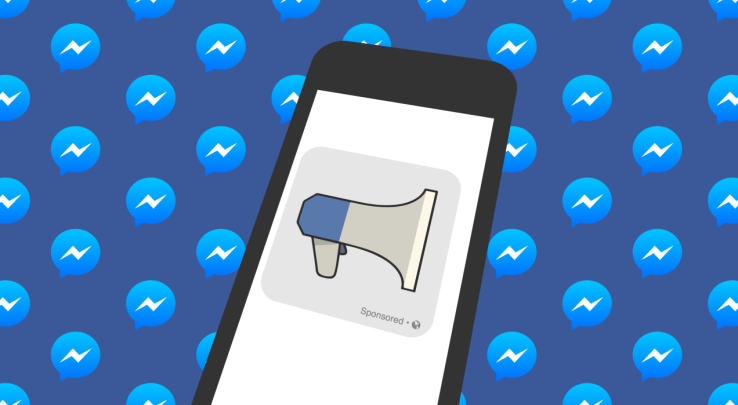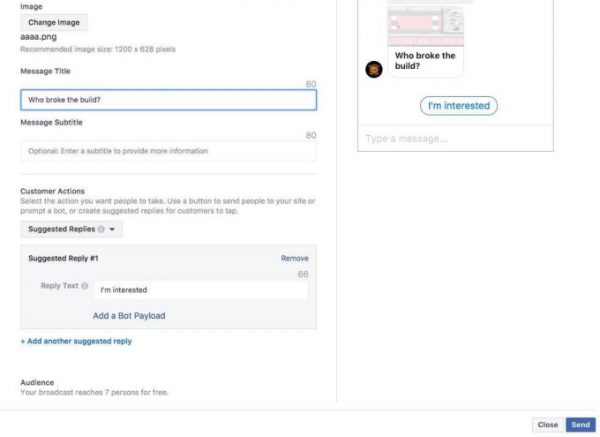Facebook’s next money-maker: Messenger Broadcasts

Facebook ‘s communicating application Messenger is spreading its functional area. Clients may hate it, however, Facebook is currently testing a self-serve sponsored messaging tool for small businesses that aren’t sufficiently complex to build bots. Facebook inside building a model of the Facebook Messenger Broadcast tool that let companies blast a message to any individual who is already beginning a discussion with them. Presently Facebook is beginning to test the Messenger Broadcast Composer externally, starting with a small percentage of Pages in the U.S., Mexico and Thailand.
Currently, this tool can be free to use, yet a Messenger representative discloses that is for a limited time only, and that eventually, this will most likely turn into a paid item that charges businesses. Messenger is topping the quantity of messages businesses can broadcast to deter spam, and won’t let them ping any individual who hasn’t voluntarily talked to them first. Yet, a few clients still may think that it is interruptive, particularly if less technically knowledgeable nearby traders impact out low-quality promotions.

Currently, with 1.3 billion clients, Facebook is anxious to adapt Messenger. However, with the display of advertisements infused into the inbox, sponsored message advertisements from big brands and now Messenger Broadcasts, Facebook dangers its chat application turning into our new spam folder.
Using the Messenger Broadcast Composer, independent companies with no coding skills can pick a subset of individuals who’ve informed them to hit with a text blast. They review a title and body content, include a picture and select a call to take action like a button people can hit to visit their site or a choice of pre-written replies.
The Businesses would then be able to complete a fundamental division of their potential recipients by manually labeling discussions with labels like “interested in shoes” and after that sending the message to threads with that label. After the free trial, Facebook likely will charge depending upon how enormous group of people a business needs to hit with a sponsored message. The original prototype noticed that businesses could ping a few clients for free, with the suggestion that they would have the capacity to pay for more reach.
The Facebook discloses that individuals are progressively messaging small companies on its platform, frequently when they look for store or product or need a client service. In 2017, 330 million individuals began discussions with private companies. “However, we got feedback from small companies that they don’t have the know-how or the tech resources to build experiences on the Messenger Platform (bots) that would empower them to contact their whole customers,” a Facebook representative said.
Both Facebook’s News Feed advertisements and Snapchat’s business developed essentially when they included self-serve ad-buying interfaces. While there are a lot of enormous brands paying for huge campaigns through advertisements APIs or account reps, small businesses around the world can greatly benefit from self-serve ads that leverage their more familiar association with clients.
